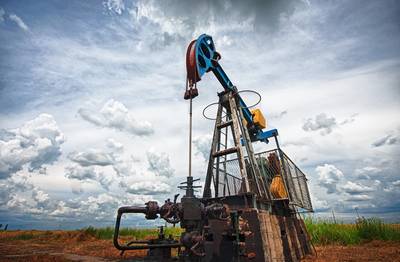U.S. energy companies added oil rigs for an 18th week in a row, the second-longest such streak on record, as expectations of higher crude prices have motivated drillers to boost monthly shale production to its highest level since mid-2015.
Drillers added eight oil rigs in the week to May 19, bringing the total count to 720, the most since April 2015, energy services firm Baker Hughes Inc said on Friday.
That is more than double the same week a year ago when there were only 318 active oil rigs.
It was the second-longest run of weekly additions, according to Baker Hughes data going back to 1987. Drillers added rigs for 19 weeks in a row through August 2011.
U.S. crude futures rebounded this week to trade around $50, putting the front-month contract on track for a second-straight week of gains. Investors expect the Organization of the Petroleum Exporting Countries (OPEC) and other producing countries to extend output cuts into next year.
OPEC and other producers will meet on May 25 to decide whether to extend the cuts aimed at reducing a global crude glut.
U.S. shale production is expected to rise for the sixth consecutive month in June to 5.4 million bpd, its highest since May 2015, government data showed on Monday.
Futures for the balance of 2017 and calendar 2018 were both fetching about $51 a barrel.
Analysts at Simmons & Co, energy specialists at U.S. investment bank
Piper Jaffray (PJR.SG), this week forecast the total oil and gas rig count would average 862 in 2017, 1,067 in 2018 and 1,184 in 2019. Most wells produce both oil and gas.
That compares with an average of 786 so far in 2017, 509 in 2016 and 978 in 2015. If correct, Simmons' 2019 forecast would be the most since 2014 when there were 1,862 active rigs. The rig count peaked in 2012 at 1,919, according to Baker Hughes.
Analysts at U.S. financial services firm Cowen & Co said in a note this week that 60 exploration and production (E&P) companies planned to increase spending by an average of 51 percent in 2017 from 2016.
That expected spending increase in 2017 followed an estimated 48 percent decline in 2016 and a 34 percent decline in 2015, Cowen said, according to the 64 E&P companies it tracks.
(Reporting by Scott DiSavino; Editing by Meredith Mazzilli and David Gregorio)













